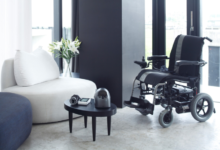The Benefits of Personalised Care Plans for Elderly Individuals with Disabilities

Elderly individuals often require specialised care to maintain their independence and quality of life as they age. While numerous care options are available, not every solution is appropriate for everyone. The health, mobility, and personal preferences of seniors can vary significantly, making a one-size-fits-all approach to care inadequate. A personalised care plan is essential to meet their unique needs, ensuring that elderly individuals receive the right level of support for their specific circumstances.
Personalised plans offer a tailored approach that addresses the unique needs of each individual. By working with self managed aged care providers, one can ensure they receive the specific support they require. This type of care is crucial in enhancing one’s quality of life and promoting independence. Personalised care takes into account not just medical needs but also emotional and social well-being.
Tailored Support for Unique Needs
Every aged person faces their own set of challenges, which vary widely depending on their health, mobility, and personal circumstances. A personalised plan takes into account these specific needs, ensuring that the individual receives appropriate and meaningful protection. Whether it’s help with daily activities, mobility assistance, or medical care, a customized approach ensures that each senior gets the exact care they require to maintain their quality of life and independence.
Personalised plans can help seniors maintain independence while ensuring safety and comfort by identifying their abilities and limitations. This level of customisation is impossible with a generic model, making a tailored plan the ideal solution for those with unique needs.
See also: How to Choose the Right Hair Transplant Clinic in Sydney: A Complete Guide
Enhanced Independence and Autonomy
One of the most significant advantages of personalised plans is their ability to promote independence. Instead of relying on a rigid system, elderly individuals can work closely with caregivers to design a plan that empowers them to take control of their daily lives. This could involve enabling them to participate in decision-making, learning new skills, or adapting the environment to suit their abilities better.
Encouraging autonomy is crucial for improving self-esteem and overall well-being. A well-crafted personalised care plan not only provides the necessary support but also offers opportunities for personal growth and development, enabling your loved ones to live more independently.
Improving Quality of Life
These are designed to enhance the quality of life by focusing on the specific needs, preferences, and goals of each elderly. For example, while addressing medical needs, a customised plan might also incorporate recreational activities, social interaction, or therapeutic practices that bring joy and comfort to their daily life.
It also evolves with the person. As needs and abilities change over time, the care plan can be adjusted to continue providing meaningful support. This flexibility ensures that they receive care that is always relevant and effective, fostering long-term well-being and happiness.
Family Involvement and Peace of Mind
In many cases, family members play a significant role in caring for elderly individuals with disabilities. Personalised care plans allow for the inclusion of family members in the planning process, helping them better understand the support being provided and how they can contribute. This collaborative approach often leads to a more robust support system, where the family and professional caregivers work together to achieve the best outcomes for your loved ones.
Flexibility and Adaptability
One of the key strengths of these plans is their adaptability as the needs of individuals with disabilities change over time—whether due to health, mobility, or lifestyle changes—care plans can be easily modified to accommodate these new circumstances. This ensures that they continue to receive the best possible care without disruption.
A generic model may not offer this level of flexibility, which can lead to gaps in care or an inadequate response to changing needs. Personalised plans, however, are designed to be dynamic, evolving alongside the individual to provide consistent, high-quality support.
Empowering Caregivers to Provide Better Support
Caregivers play a vital role in the lives of elderly individuals with disabilities, and personalised plans give them the tools they need to provide the best support. By outlining clear goals and specific requirements, these plans ensure that caregivers know precisely how to meet their needs. This level of preparation allows them to deliver high-quality, compassionate protection while fostering a positive and supportive environment.
These tailored solutions offer a vast range of benefits for elderly individuals with disabilities, their families, and caregivers. By working with self managed aged care providers, support can be tailored to the distinctive needs of each person, promoting independence and improving quality of life. These plans ensure that care is always relevant and practical, addressing both current and future needs. As a dynamic and adaptable solution, it evolves with the individual, ensuring that they receive the best protection possible at every stage of life.
The impact of personalised care is far-reaching, providing not only practical support but also emotional and psychological benefits. With the right plan in place, elderly individuals with disabilities can live fuller, more empowered lives, surrounded by a support system that genuinely understands and meets their needs.






